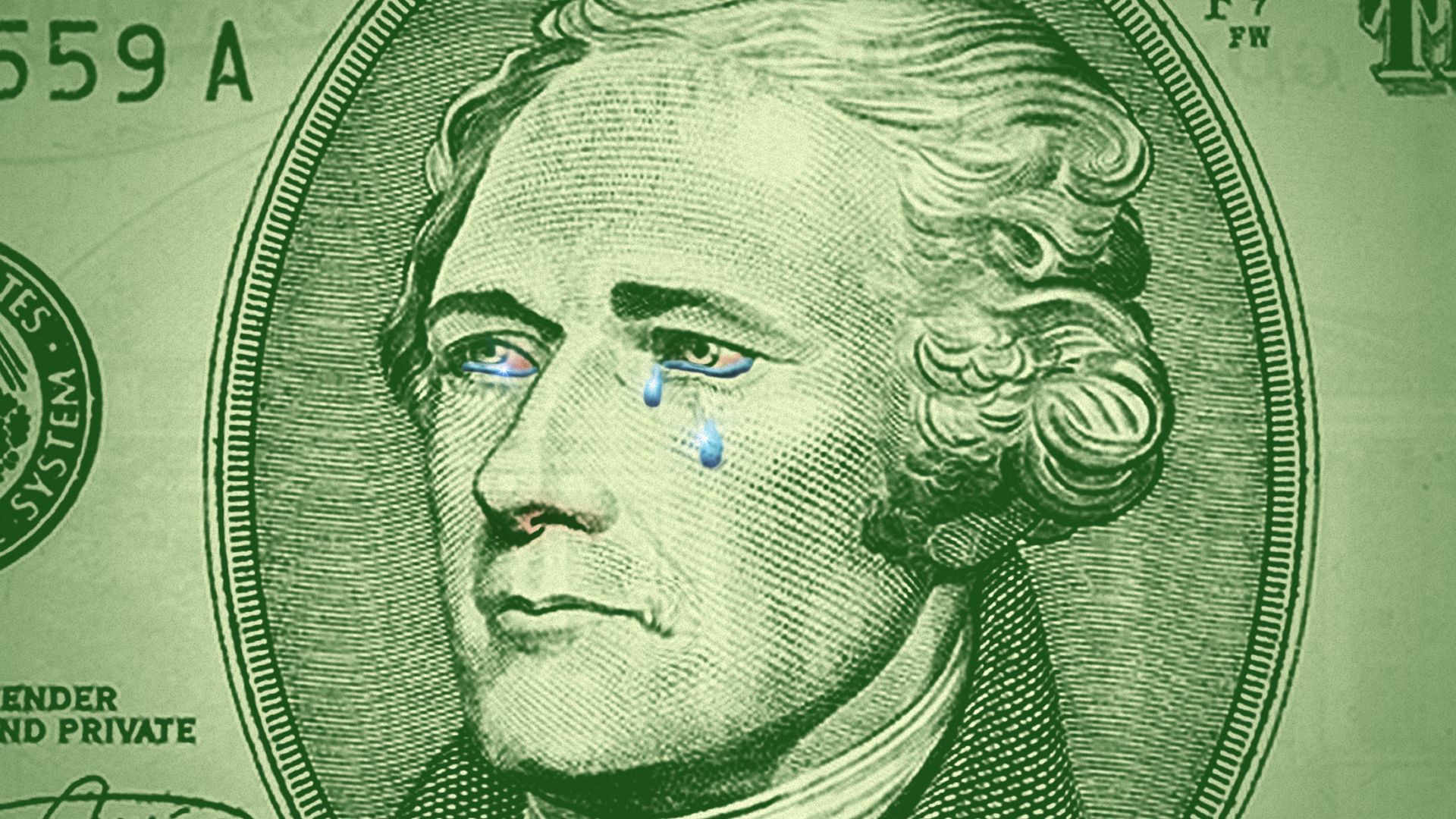The repercussions of a first-ever default on the federal debt would quickly reverberate around the world.

Illustration: Natalie Peeples/Axios
What it would mean for the global economy if the US defaults on its debt
WASHINGTON (AP) — If the debt crisis roiling Washington were eventually to send the United States crashing into recession, America’s economy would hardly sink alone.
The repercussions of a first-ever default on the federal debt would quickly reverberate around the world. Orders for Chinese factories that sell electronics to the United States could dry up. Swiss investors who own U.S. Treasurys would suffer losses. Sri Lankan companies could no longer deploy dollars as an alternative to their own dodgy currency.
“No corner of the global economy will be spared” if the U.S. government defaulted and the crisis weren’t resolved quickly, said Mark Zandi, chief economist at Moody’s Analytics.
Zandi and two colleagues at Moody’s have concluded that even if the debt limit were breached for no more than week, the U.S. economy would weaken so much, so fast, as to wipe out roughly1.5 million jobs. . .Of course, it might not come to that. The White House and House Republicans, seeking a breakthrough, concluded a round of debt-limit negotiations Sunday, with plans to resume talks Monday. The Republicans have threatened to let the government default on its debts by refusing to raise the statutory limit on what it can borrow unless President Joe Biden and the Democrats accept sharp spending cuts and other concessions.
US DEBT, LONG VIEWED AS ULTRA-SAFE
‘SHOCKWAVES THROUGH THE SYSTEM’
“If the trustworthiness of (Treasurys) would become impaired for any reason, it would send shockwaves through the system ... and have immense consequences for global growth,” said Maurice Obstfeld, senior fellow at the Peterson Institute for International Economics and former chief economist at the International Monetary Fund. , ,
CENTRAL BANKS’ STOCKPILES OF DOLLARS
Of all the foreign exchange reserves held by the world’s central banks, U.S. dollars account for 58%. No. 2 is the euro: 20%. China’s yuan makes up under 3%, according to the IMF. . .
THE GO-TO HAVEN FOR INVESTORS
Even when a crisis originates in the United States, the dollar is invariably the go-to haven for investors. That’s what happened in late 2008, when the collapse of the U.S. real estate market toppled hundreds of banks and financial firms, including once-mighty Lehman Brothers: The dollar’s value shot up.
“Even though we were the problem — we, the United States — there was still a flight to quality,” said Clay Lowery, who oversees research at the Institute of International Finance, a banking trade group. “The dollar is king.’’ . .



No comments:
Post a Comment